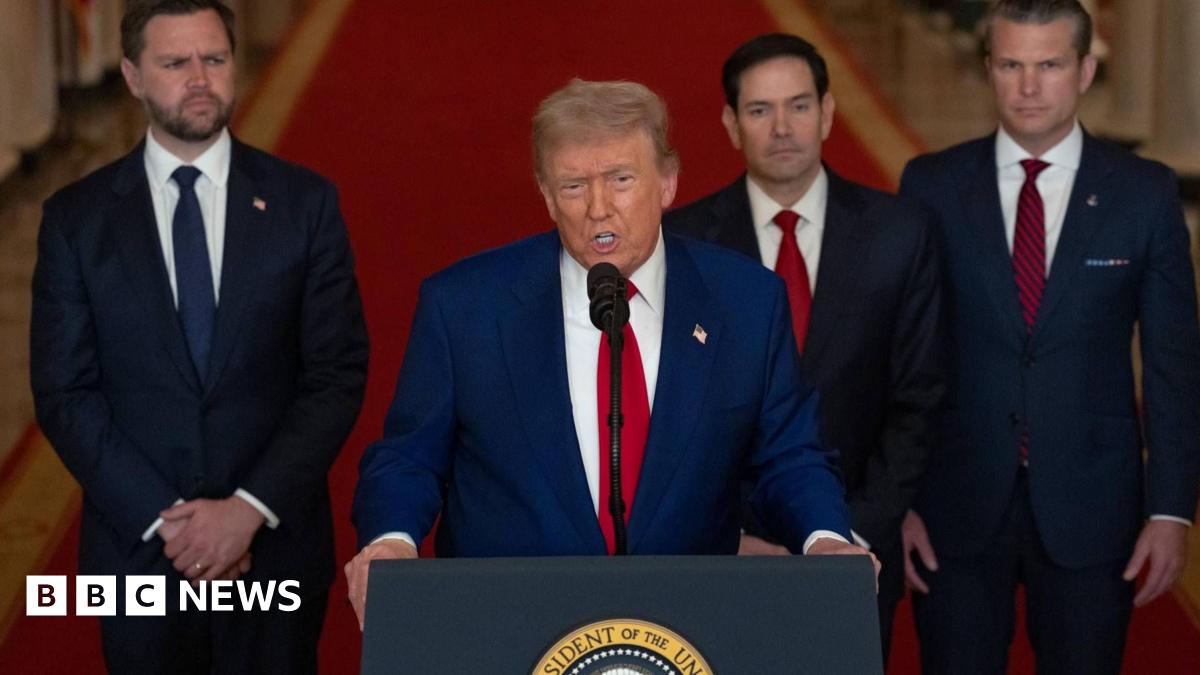Trump's Renewed Clash with Intelligence: A Pattern of Distrust Emerges Amid Iran Tensions

Trump's Renewed Clash with Intelligence: A Pattern of Distrust Emerges Amid Iran Tensions
The familiar narrative of President Donald Trump’s strained relationship with the intelligence community is resurfacing. While his first term was marked by public clashes over the Russia investigation, a new chapter is unfolding as Trump actively challenges assessments and seeks to control the public's perception of his foreign policy decisions regarding Iran. This ongoing tension raises questions about the future of intelligence analysis within the government and the potential impact on national security.
Throughout his presidency, Trump consistently expressed skepticism towards the intelligence community, often dismissing their findings as “fake news” or politically motivated. This distrust reached a fever pitch during the investigation into alleged Russian interference in the 2016 election. Trump repeatedly attacked the credibility of intelligence officials and the integrity of the investigation itself, creating a climate of animosity and undermining public confidence in the agencies responsible for safeguarding national security.
Now, as tensions escalate with Iran, a similar pattern is emerging. Trump has publicly rejected intelligence assessments regarding Iran's actions and intentions, opting instead to present a narrative that supports his own policy objectives. This includes downplaying the severity of Iran’s nuclear program and dismissing concerns about its regional influence. Critics argue that this selective use of information is misleading the public and hindering a comprehensive understanding of the complex geopolitical landscape.
The consequences of this ongoing conflict are significant. A healthy democracy relies on a robust and independent intelligence community, free from political interference. When the president publicly undermines the credibility of these agencies, it erodes public trust and weakens the nation’s ability to make informed decisions. Furthermore, it can discourage intelligence professionals from providing objective assessments, fearing retribution or political pressure.
The current situation with Iran highlights the potential dangers of this pattern. By rejecting intelligence assessments and promoting a narrow perspective, Trump risks miscalculating the risks and escalating tensions unnecessarily. A more nuanced and informed approach, based on objective analysis, is crucial to navigating this delicate situation and safeguarding American interests.
Experts suggest that Trump's distrust stems from a combination of factors, including a belief that the intelligence community is biased against him and a desire to maintain absolute control over his administration's narrative. Regardless of the underlying motivations, the consequences of this ongoing conflict remain a serious concern for national security and the integrity of American democracy. The future will reveal whether this pattern continues, and what impact it will have on the nation’s ability to address complex global challenges.
The question remains: How can the intelligence community effectively serve its purpose when faced with a president who consistently questions its findings? Finding a sustainable solution to this fundamental challenge is essential for ensuring the long-term health of American democracy and national security.





